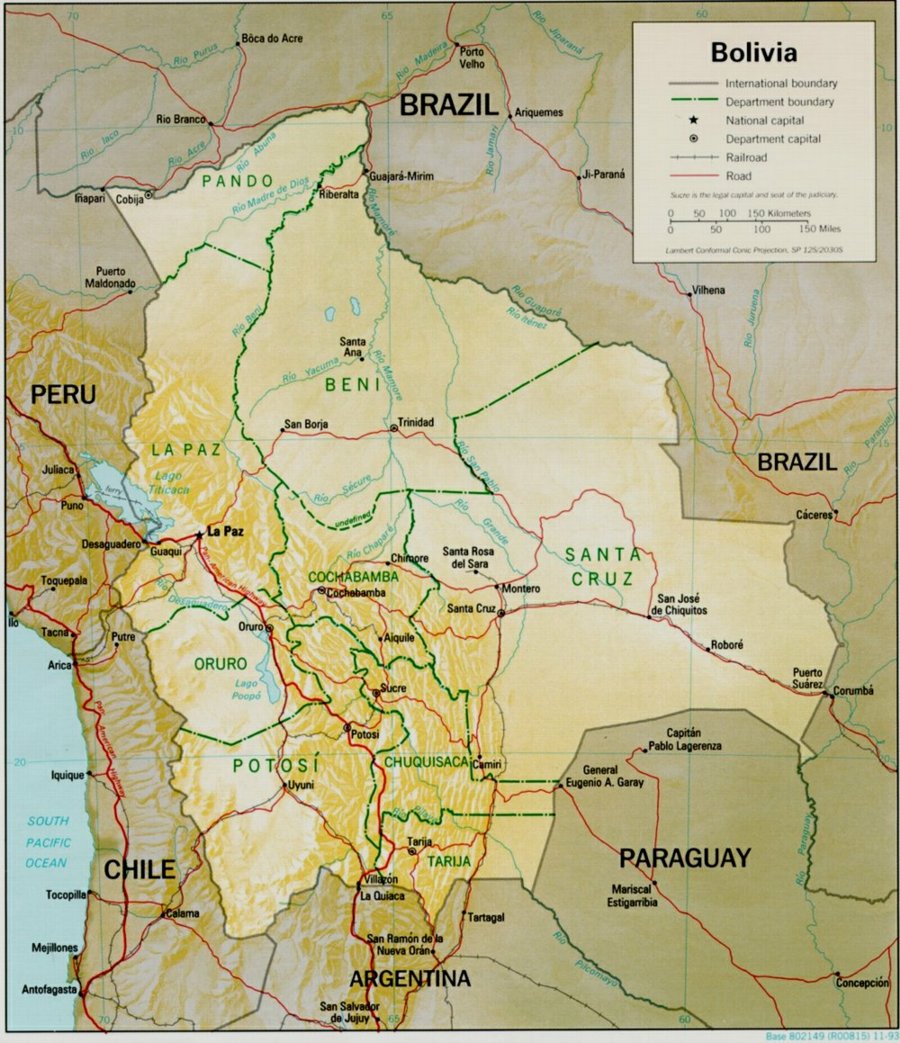| POPULATION: |
|
 |
| LITERACY RATE: |
|
|
| SELF DEFENSE FORCES: |
|
|
| LANGUAGES: |
|
|
| ETHNIC GROUPS: |
|
|
| BORDERING COUNTRIES: |
|
| POPULATION: |
|
 |
| LITERACY RATE: |
|
|
| SELF DEFENSE FORCES: |
|
|
| LANGUAGES: |
|
|
| ETHNIC GROUPS: |
|
|
| BORDERING COUNTRIES: |
|
 specifically
targeting the coca plant was first released in Bolivia, with support
from the government. Overnight the Bolivian economy was
completely devastated. No one could have imagined just how much
the economy in Bolivia was dependent on the coca-plant, and without it,
there was nothing left, no jobs, no revenue, nothing. The
Bolivian government soldiered on, telling its people that as soon as
the war was over, the U.S. would come and invest, providing new jobs
for everyone. It was a nice dream while it lasted.
specifically
targeting the coca plant was first released in Bolivia, with support
from the government. Overnight the Bolivian economy was
completely devastated. No one could have imagined just how much
the economy in Bolivia was dependent on the coca-plant, and without it,
there was nothing left, no jobs, no revenue, nothing. The
Bolivian government soldiered on, telling its people that as soon as
the war was over, the U.S. would come and invest, providing new jobs
for everyone. It was a nice dream while it lasted.(Written by Deric "D" Bernier.)